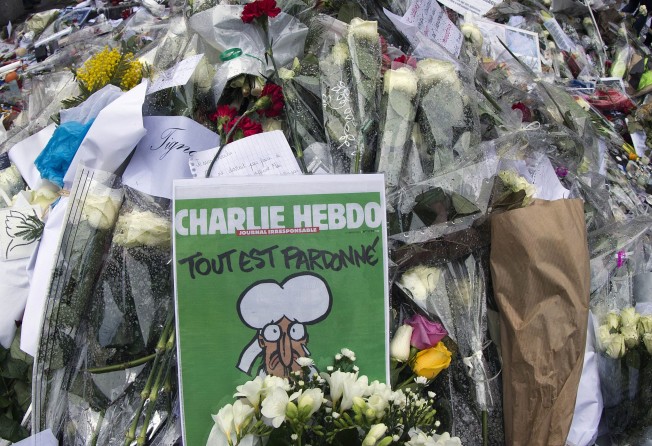Defiance and security cooperation likely to follow Paris terrorist attacks
Stathis Kalyvas notes the threat of a knee-jerk response that best serves attackers

The terrorist attacks that shook Paris fall under the category of unimaginable - because of their spectacular, yet unexpected quality. From piloting jetliners into iconic skyscrapers to massacring a roomful of popular cartoonists, these attacks push us out of our comfort zone.
Because of their spectacular and transgressive nature, these attacks are potentially transformative events. The US Patriot Act, signed into law in October 2001, is perhaps the most striking such example. Because they are so shocking, these attacks tempt those targeted into reacting in a knee-jerk way, ultimately playing into the hands of the attackers and becoming self-fulfilling prophecies of sorts. In fact, this is the greatest threat they pose.
On the domestic front, the biggest issues raised by the attack on Charlie Hebdo relate both to questions of free speech and to public attitudes and policies vis-à-vis France's Muslim population.
Free speech in France is somewhat ambiguous. On the one hand, public discourse tends to be much more provocative compared to the US, especially when addressing religion and other sensitive issues. On the other hand, there are certain areas in France where free speech is legally restricted in a way totally out of place in the US. The Gayssot Act, for instance, makes it illegal to question the existence of crimes deemed to be crimes against humanity, prohibiting denial of the Holocaust.
Despite all this, the long tradition of France's provocative bent makes the imposition of additional restrictions or the emergence of self-censorship unlikely. If anything, the most likely outcome is defiance.
The status of the Muslim population in France has generated interminable debates. There are problems with the integration of immigrants in general and specifically marginalised second-generation immigrant youth. Conversely, a large segment of the French Muslim population is gradually becoming part of the French middle class and social fabric. If anything, the Paris attacks will cause the French political class to redouble efforts towards integration.
One should not take too literally either the French "declaration of a war on terrorism" or the references to the "permanent threat" posed by radical Islam - and, thus, not reach the facile conclusion that France in particular and Europe in general are about to launch a crusade à la the US in the aftermath of the September 11 attacks.
One issue likely to attract more immediate attention is prison reform. Among the most striking elements of the Paris attacks is the realisation that the radicalisation of marginalised youth often takes place inside French prisons.
In the international realm, the transformation of the Syrian civil war, in particular, into a recruitment ground for disaffected Muslim youth is worrisome. It is likely that voices arguing for a resolution and an end to the military stalemate in Syria will strengthen.
The most likely policy outcome is cooperation among European security services. A generalised sense that cooperation was lagging, thus facilitating arms trafficking and unhindered movement of radicals across borders - this is likely to change.
At the end of the day, it must be recognised that radical Islam cannot be defeated only through policing, for it takes only a handful of people to commit spectacular acts of terror. Its defeat will entail a war of ideas within Muslim and, in particular, Arab societies - ultimately coming as a result of failure to offer solutions to their many problems.
Radical Islamist terrorism constitutes what political scientist David C. Rapoport has dubbed the fourth global wave of terrorism. The previous three waves - the Anarchist wave, which began in Russia in the 1880s, the Anti-colonial wave which took off in the 1920s, and the New Left wave of the 1960s and 1970s - eventually extinguished themselves when their political agendas proved inadequate. In the short term, we can most effectively shorten the life of radical Islam by refusing to assume it represents a majoritarian or even significant segment of Islam.
Stathis N. Kalyvas is Arnold Wolfers professor of political science at Yale. Copyright: The Whitney and Betty MacMillan Centre for International and Area Studies at Yale